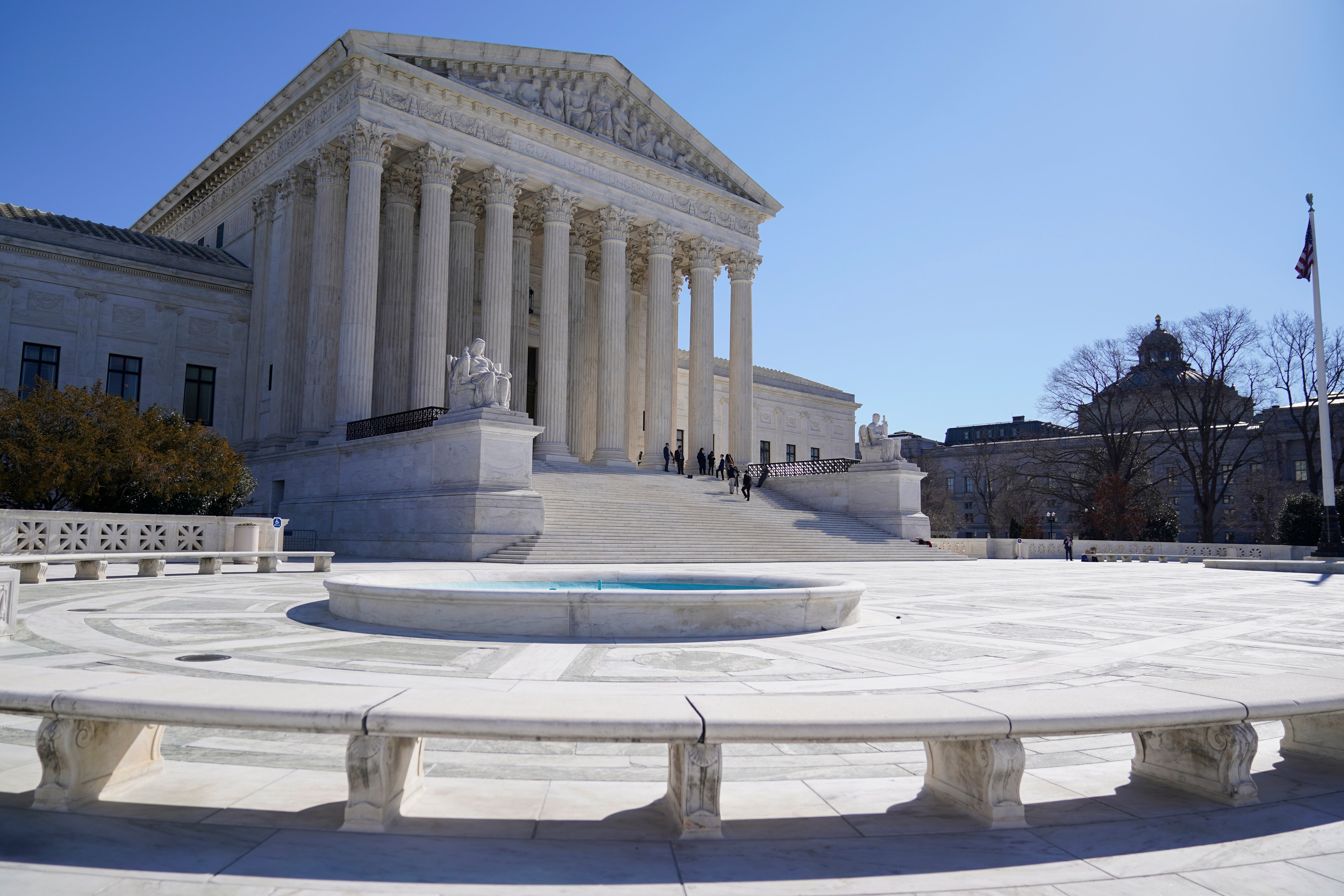Justices cast doubt on Texas immunity claim in vet's lawsuit
The Supreme Court is casting doubt on Texas’ claim that it can’t be sued by a former state trooper who says he was forced out of his job when he returned from Army service in Iraq

Your support helps us to tell the story
From reproductive rights to climate change to Big Tech, The Independent is on the ground when the story is developing. Whether it's investigating the financials of Elon Musk's pro-Trump PAC or producing our latest documentary, 'The A Word', which shines a light on the American women fighting for reproductive rights, we know how important it is to parse out the facts from the messaging.
At such a critical moment in US history, we need reporters on the ground. Your donation allows us to keep sending journalists to speak to both sides of the story.
The Independent is trusted by Americans across the entire political spectrum. And unlike many other quality news outlets, we choose not to lock Americans out of our reporting and analysis with paywalls. We believe quality journalism should be available to everyone, paid for by those who can afford it.
Your support makes all the difference.The Supreme Court on Tuesday cast doubt on Texas' claim that it can't be sued by a former state trooper who says he was forced out of his job when he returned from Army service in Iraq.
The justices heard arguments in a dispute over a federal law that was enacted in 1991 in the wake of the Persian Gulf war to strengthen job protections for returning service members.
Over 90 minutes, the justices discussed the Vietnam War, Russia's invasion of Ukraine, Alexander Hamilton and even Hamilton, the musical, as they tried to sort through whether states are shielded from lawsuits filed by veterans who complain that their jobs were not protected, in violation of the federal law.
At the heart of the case is Congress' power to wage war and states' acknowledgments that they lacked similar authority, both laid out in the Constitution.
“We don't know what's going to be happening in the next 50 years. We don't know what's going to be happening in the next 50 days in terms of national security and personnel,” Justice Brett Kavanaugh said.
The court weighing an appeal by Le Roy Torres, who spent a year in Iraq and was discharged as a captain after nearly 19 years in the U.S. Army Reserve.
Torres says he suffered lung damage from exposure to open burn pits on his base in Iraq.
The state and Torres dispute what happened when he returned to Texas, unable to resume his job as a state trooper because of the damage to his lungs. He eventually resigned and later filed his lawsuit. A state appellate court dismissed it, and the justices stepped in.
The Biden administration is backing Torres' right to sue the state.
Fifteen other Republican-led states are calling on the court to side with Texas and rule out private lawsuits like Torres'.
Congress first allowed returning service members to sue states to keep their jobs in 1974, recognizing discrimination because of opposition to the Vietnam War.
“The Vietnam War is what made the statute necessary,” Justice Sonia Sotomayor said.
And opposition to a future war could result in a similar situation, Justice Amy Coney Barrett said.
“Let's say we get involved in Ukraine and states say we shouldn't be,” Barrett said.
The discussion briefly turned to the theater when Justice Stephen Breyer invoked Hamilton's “You'll Be Back” to illustrate that George Washington's frustration with the states' reluctance to pay the Continental Army led to the establishment of a national defense.
“George III says, ‘They’ll come back. Wait and see. They'll come crawling back to me,'” Breyer said, capturing the sentiment, but not the lyrics to the song.
Just last week, the court allowed the Navy to take account of sailors' vaccination status in deciding on deployments, narrowing a lower court order. Three justices, Samuel Alito, Neil Gorsuch and Clarence Thomas, dissented from the high court's order.
Gorsuch and Thomas seemed the most amenable to Texas' arguments Tuesday. “I'm perhaps not as enamored of Hamilton as some are,” Thomas said,
Thomas again took part remotely Tuesday, following a nearly week-long hospital stay for what the court described as an infection. The court has not elaborated on the nature of the infection and there was no explanation of why Thomas was not in the courtroom.